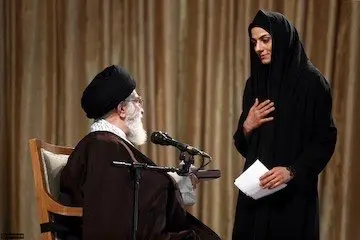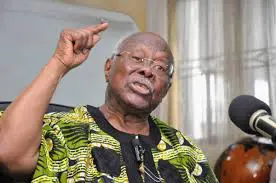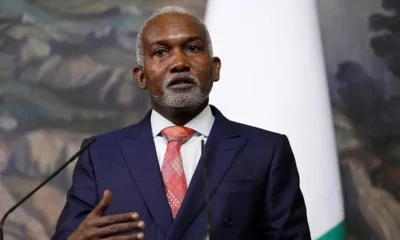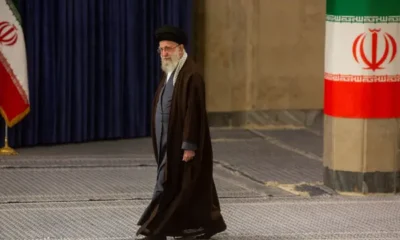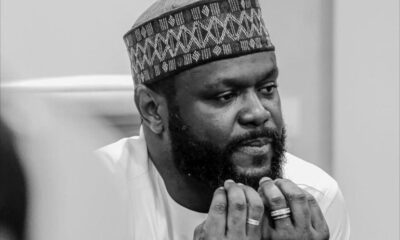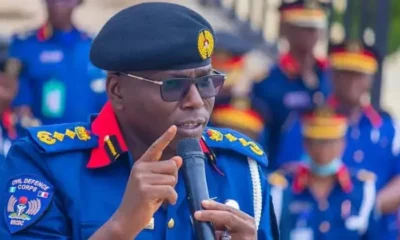News
How Brand Nigeria suffers for misdeeds of few abroad
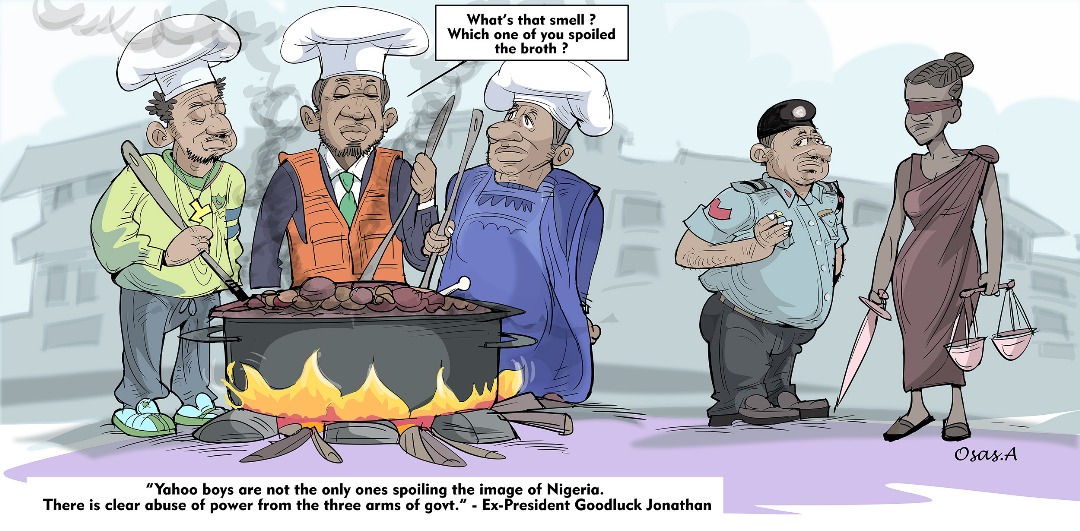
As Nigeria continues its pursuit of Foreign Direct Investment (FDI), its efforts are severely hampered by the actions of some citizens who aim to tarnish the country’s image. While the political class has played a significant role in damaging Nigeria’s reputation by engaging in multifaceted electoral malpractices and institutionalised corruption, organised crime syndicates are making it difficult for genuine businessmen, students, and migrants to escape suspicion abroad. LEO SOBECHI reports that these and many others combine to make the challenge of reviving the country’s economy an arduous one, and the country a pariah entity.
When a 25-year-old Nigerian fashion entrepreneur, Samuel Onuoha, was apprehended in his $50 million mansion in Dubai for allegedly smuggling 250 kilogrammes of cocaine into the United Arab Emirates, alongside his brother, Reuben, many were, yet again, mouth agape at the rapidity with which negative stories about Nigeria and Nigerians flood the airwaves.
The brothers, known for their social media influence, are facing charges that could result in a minimum of 25 years in prison.
Their arrest sparked discussions about the authenticity of their wealth and the influence they had on their young followers.
In June 2020, Ramon Abass, well known as Hushpuppi, was arrested by the U.S. Federal Bureau of Investigation (FBI) in Dubai and repatriated to the United States of America for offences ranging from identity theft to cybercrimes.
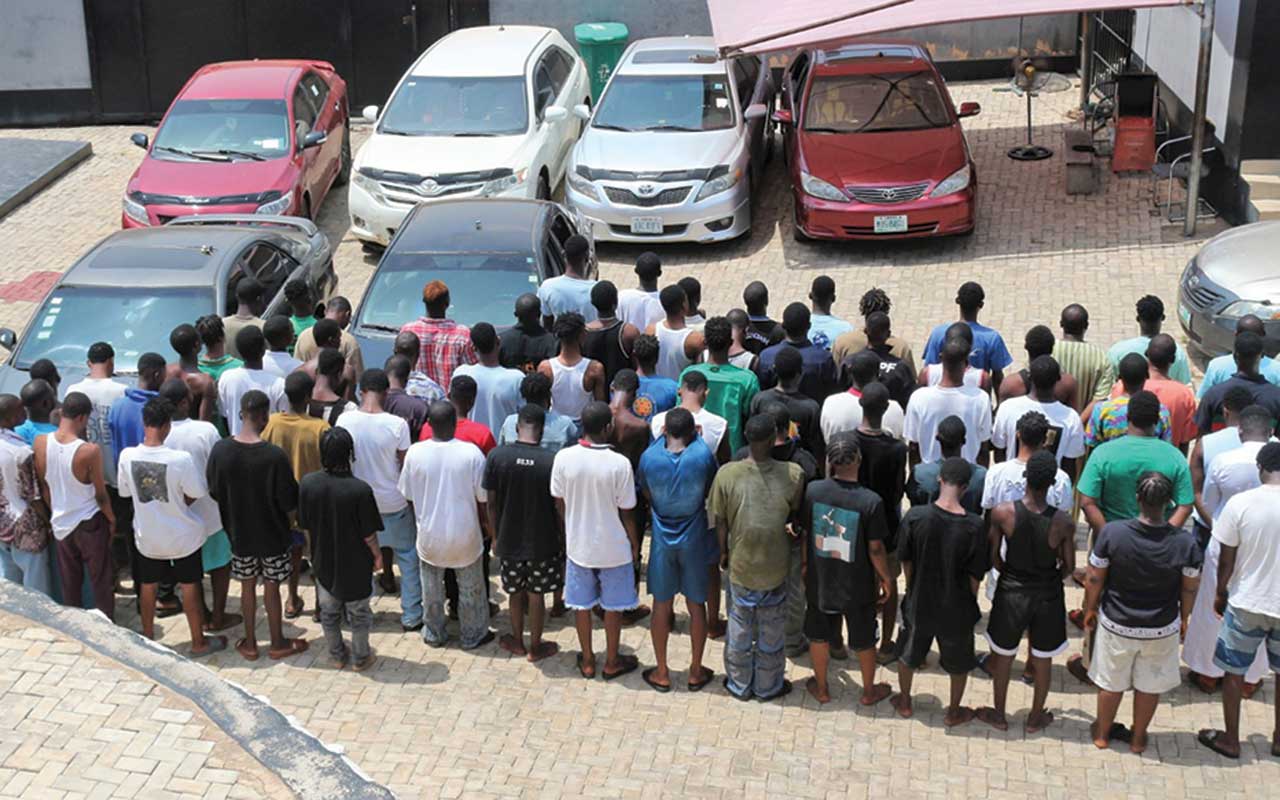 Prior to his arrest and removal to the United States, Hushpuppi lived virtually on Instagram and in the UAE as Billionaire Gucci Maestro, having scaled up his con artistry from a low-level “Yahoo boy” in Lagos.
Prior to his arrest and removal to the United States, Hushpuppi lived virtually on Instagram and in the UAE as Billionaire Gucci Maestro, having scaled up his con artistry from a low-level “Yahoo boy” in Lagos.
After Abass’ arrest, authorities of the United Arab Emirates (UAE), as well as residents, were yet again peeved when some young Nigerians armed with cutlasses, cudgels and other harmful objects were caught on video clips, while engaged in intercultural war on the streets of Ajman, in Dubai.
As a result of that scuffle, which was later identified as a supremacy clash between the Eiye and Aiye confraternities, the UAE decided to impose visa restrictions on Nigerians as a punitive measure to deter such barbaric displays in their country.
Although the scuffle took place in a parking lot within a secluded apartment, public properties were destroyed, and the Sharjah authorities said they could not condone such violent disturbance.
Dubai is not the only country where the excesses of unscrupulous Nigerians are causing their host countries immense worry. The United States, the United Kingdom, South Africa, Ghana, and China, among others, have recorded ugly scenes created by Nigerians.
For instance, in the case involving Hushpuppi, a district court in the United States indicted a former Deputy Commissioner of Police, Mr Abba Kyari. While the court claimed that Hushpuppi contacted Kyari to assist in the recovery of an N8 million debt from his friend, Abass said he gave money to Kyari to help arrest and jail “one of his rivals in Nigeria after a dispute over a $1.1 million scam on Qatari business people.
For far too long, Nigerians abroad have suffered varying shades of mistreatment because they are viewed as corrupt or criminally inclined. No thanks to the criminal and disgusting activities of their compatriots resident both at home and abroad.
Today, it has become almost a daily feature to see the Economic and Financial Crimes Commission (EFCC) parade young Nigerians for fraud or the NDLEA nab individuals involved in drug trafficking.
Matters are made worse by the fact that, for several years, the country has been at the bottom of Transparency International’s (TI) Corruption Perception Index (CPI), owing to endemic corruption and the government’s half-hearted attempts to eradicate the malaise. The country’s failure to curb senseless killings and secure the property and lives of citizens has all counted against its reputation internationally.
Internationally, Nigeria’s image has almost always been negative, and identifying as a Nigerian comes with its own burden, which includes often being perceived in a suspicious manner by foreigners, lost opportunities and denial of level playing fields in certain quarters.
While all this is happening, the disposition of the country’s political leadership is not helping matters. If anything, it is adding to the already ugly scenario.
For instance, the selective application of justice in several quarters and transactional nature of some jurists; the near absence of the rule of law across board, as well as the absence of credible election, which poses a threat to popular democracy have all tinted the way that the country is viewed just as it forces potential investors to think twice before considering investing in the Nigerian economy.
Only two years ago, the U.S. placed visa restrictions on some Nigerian justices for their less-than-excellent display of judicial impartiality in electoral matters.
Shortly before the 2023 general election, former governor Donald Duke of Cross River State disclosed that America denied visas to the jurists, who delivered an incongruous verdict that “made a candidate who came fourth the winner of an election.”
Duke, who made the assertion in a remark at the launch of a memoir by Justice Charles Archibong (retd), in Lagos, spoke of the extent to which judicial corruption could tarnish the country’s image.
A similar concern about Nigeria’s image was raised shortly after the plenary crisis over the siting arrangement involving the representative of Kogi Central Senatorial District, Natasha Akpoti-Uduaghan, and the Senate leadership.
Although Akpoti-Uduaghan pleaded malicious intentions bordering on sexual harassment, Nigerians took exception to the senator’s tactics, especially when she went international by taking the matter abroad.
Many Nigerians specifically complained about the impact of dragging a domestic conflict into the international community after Mrs Akpoti-Uduaghan, shortly after her suspension from plenary by the Senate, approached the Inter-Parliamentary Union (IPU) on March 11.
Addressing the delegates to the IPU in New York, she said, “I came with a heavy heart from Nigeria. But first, I would like to apologise to Hon. Kafilat Ogbara. I am not here to bring shame to our country, I am here to seek help for the women of Nigeria.”
She continued: “I was suspended for six months, amongst many other stringent conditions, such as taking away my security, taking away all the official vehicles and other items that were handed over to me as a senator. My salaries will be cut off. I must not appear anywhere near the National Assembly, and for six months, I’m not to introduce or present myself as a senator locally in Nigeria or internationally.”
Nigerians who noted that the issue was political felt that accusing the President of the Senate, Godswill Akpabio, of sexual harassment in such a forum was a bold smear on the country’s already battered image.
Similarly, the Canadian Federal Court’s recent decision classifying the ruling All Progressives Congress (APC) and Peoples Democratic Party (PDP) as terrorist organisations is deeply troubling and has been strongly objected to. The decision, which mischaracterises Nigerian politics without distinguishing between individual misconduct and institutional intent, has been described as one that undermines the democratic processes of a sovereign nation.
The position of the Canadian court stems from a decision about former Nigerian politician, Douglas Egharevba, who faces deportation from Canada after the Canadian Federal Court, in the case of Egharevba v. Canada (Public Safety and Emergency Preparedness), 2025 FC 1093. The court upheld the decision of Canada’s Immigration Appeal Division (IAD), which declared Nigeria’s two major political parties—the All Progressives Congress (APC) and the People’s Democratic Party (PDP)—as terrorist organisations.
This case arose from an asylum application filed by Egharevba, a Nigerian politician who belonged to the PDP from 1999 to 2007 before defecting to the APC. He arrived in Canada in September 2017 and sought asylum on the grounds of political persecution in Nigeria. The Minister of Public Safety and Emergency Preparedness argued that both the PDP and APC, to which Egharevba belonged, were deeply implicated in acts of political violence, subversion of democracy, and electoral bloodshed—inflicting harm and terror on Nigerians.
However, there are deep lessons, as the court’s pronouncement serves as a wake-up call to Nigerian politicians and political institutions that they cannot set a standard for Nigeria that is less than the acceptable minimum for the rest of the world.
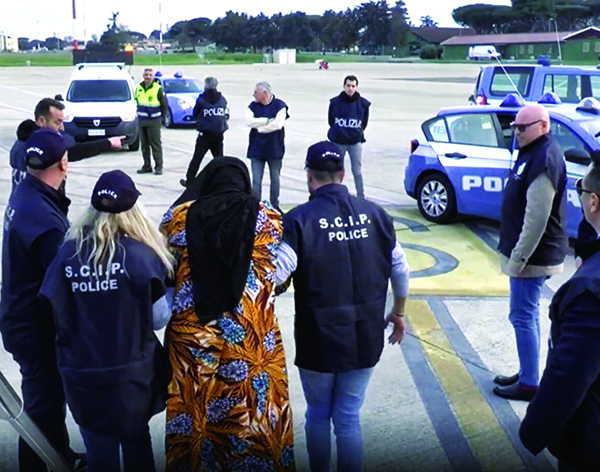 Drug trafficking, sex trade, and Internet fraud as sore thumbs
Drug trafficking, sex trade, and Internet fraud as sore thumbs
AS hundreds of Nigerians leave the country daily in search of greener pastures, their desperation to eke out a living despite all odds has also seen many of them damage the country’s reputation by their actions and inaction abroad.
Many young females who leave the country do so under dubious travel arrangements by rapacious criminals, who end up selling them into sex slavery or forced servitude. These merchants of fortune cause immense nuisance in their countries of illegal residence.
A few weeks back, the Nigeria Diaspora Commission (NIDCOM) rescued one Mercy Oluwagbenga, who embarked on what the NIDCOM boss, Abike Dabiri-Erewa, described as a voluntary suicidal travel to Libya.
The 20-year-old school dropout recounted how she was lured to Libya with the promise of greener pastures, as she sought money to care for her ailing mother.
Narrating how she got enmeshed in modern-day slavery, Mercy stated: “For 18 months, I worked without receiving a kobo, because I had to pay the agent who took me to Libya the sum of about N2.5 million. I was maltreated, I changed jobs, and at one point, locked up in a house where my blood was drawn without my consent.”
Apart from drug trafficking, which has really flourished among criminally minded Nigerians, new concerns have continued to plummet the country’s image both within and outside the country.
This can be gleaned from Internet fraud and various cybercrimes that have become the latest sources of headaches.
In the main, the country’s economic challenges, poor political leadership, insurgency, electoral violence, and social crimes, including dating scams and identity theft, have all combined to compound the country’s perception in the international community.
The formidable impetus provided by Information and Communication Technology (ICT) has given a new generation of Nigerians, mostly young people, the opportunity to experiment with cross-border crimes that attract international censure, including the so-called “Yahoo Yahoo” or intent scammers.
Concerned by the prevalence of Internet-related con artistry, the Chairman of the Economic and Financial Crimes Commission (EFCC), Mr Ola Olukoyede, recently disclosed that the increase in social media fraud is not only tarnishing the country’s image but also leading to harsh travel conditions due to visa restrictions.
Dr Sunusi Iguda, in a study titled “Country Image of Nigeria: A Preliminary Study of Factors Affecting the Perception of Nigeria in the 21st Century,” pointed out that “around the turn of the 20th Century, Nigeria and Nigerians were perceived as a great country with wonderful people. Nigeria’s green passport guaranteed its citizens access to countries and gave them a competitive edge in business transactions and public trust. Today, Nigeria is suffering from a battered image, and its people are despised and sometimes avoided in public places or treated with contempt at international airports.
“The bad name and image Nigeria and Nigerians are suffering from has long been sensed and bitterly felt by individuals and governments. The Federal Government of Nigeria has launched various branding projects and image-building strategies. One of such efforts is the “Heart of Africa Project 2004”, and before it was “Giant of Africa.”
‘Political corruption, greatest threat to Nigeria’s image internationally’
BEYOND loud living and ostentatious displays that attract negative criticisms, the absence of justice and rule of law, and Internet scamming, issues of official graft and corruption compound the absence of good governance in the country.
Speaking on the many sides of corruption and corrosion of Nigeria’s good image before the international community, former President Goodluck Jonathan noted that it was not only cybercriminals, better known as “Yahoo Yahoo boys”, that are spoiling the country’s image.
According to the former Nigerian leader, political corruption goes further to tarnish the country’s image in negative colours. “There is clear abuse of power from the three arms of government,” he stated, adding that no businessman can bring his business to a country where the judiciary is corrupt.
Jonathan also declared that attempts to stifle dissent by those in authority can leave the impression of an intolerant and lawless society in the eyes of other nationals, stressing that the growing marginalisation of opposition voices and unchecked political manoeuvring could steer Nigeria toward dangerous authoritarianism.
The former president, who spoke at a night of tributes for the late Ijaw elder statesman, Pa Edwin Clarke, stated: “Nigeria’s situation is different. Our multi-ethnic, multi-religious identity requires a pluralistic political framework, not one designed by accident or imposed through manipulation.”
Also speaking along this line, the Coordinator of the Human Rights Writers Association of Nigeria (HURIWA), Emmanuel Onwubiko, said, “Political corruption constitutes the greatest threat to our image internationally.”
Onwubiko remarked: “The fact that elections are seamlessly manipulated by the electoral umpire, only for the courts to rubber-stamp the electoral robberies, makes the rest of the World not respect any government that emerges from a manipulated election. So, our leadership recruitment strategy is skewed and corrupt. This informed the reason the high court in Canada described both the APC and PDP in Nigeria as terrorist organisations.
“Then the incessant foreign trips by government officials and by the president, who often travels to Western Europe for alleged ‘medical tourism’, have brought grave shame to Nigeria and portray the country as a place where those in government don’t care about good governance standards. To make matters worse, Tinubu’s administration has, for two years, failed to appoint ambassadors, which will harm our international standing and image.
But the co-convener of Nigeria Renewal Movement (MRN), Da Jonathan Sunday Akuns, noted that Nigeria’s battered image is not a product of chance. He contended that it is rather the outcome of consistent actions and inaction of individuals, institutions, and leadership.
“At the heart of it lies structural stasis in governance due to indulging overbearing ethnic balance of power (eBoP); corruption is a product of insidious prebendal habits and the outcome of recursive policy measures. This, coupled with weak elite consensus and legitimacy questions of governance, is the most corrosive ailment of Nigeria,” he asserted.
Akuns maintained that over time, successive governments have been tainted by scandals involving the diversion of public funds, inflated contracts, and outright theft of resources meant for development.
He stressed that when leaders embezzle public funds brazenly, while citizens languish in poverty, it sends a loud signal to the world that Nigeria tolerates impunity, noting: “This culture of graft not only impoverishes the masses, but also brands the country as a safe haven for kleptocrats.”
While contending that the political class has played the greatest role in damaging Nigeria’s reputation by indulging in multifaceted electoral malpractices, Akuns said that citizens should not be absolved from equal blame.
He disclosed that criminal networks also bear a heavy share of responsibility for soiling Nigeria’s image through drug trafficking, financial scams and Internet fraud, certificate racketeering in academia, and multi-dimensional criminal enterprises run by a segment of Nigerians have tarnished the reputation of millions of honest citizens.
“Closely tied to political rot is the role of law enforcement agencies and the judiciary. Instead of being defenders of justice, they are often complicit in abuse, extortion, and miscarriage of justice. Reports of police brutality, unlawful detention, and extra-judicial killings have amplified Nigeria’s notoriety internationally. The judiciary, meant to be the last hope of the citizens for retributive justice, is often accused of selling judgments to the highest bidder,” he emphasised.
The traditional ruler also thumbed down the media, both foreign and domestic, for contributing to Nigeria’s negative image.
“International reportage on Nigeria is often dominated by crime, corruption, terrorism, and disasters, while stories of innovation, resilience, and progress are sidelined. Domestically, sensationalist reporting without balanced context worsens the situation.
“While the misdeeds of a few citizens are amplified, the silent achievements of millions who contribute positively are drowned out. This skewed narrative cements Nigeria’s image as a land of perpetual crisis and a crime-prone pursuit of happiness in life.
“Religious and ethnic leaders, too, are not innocent. Instead of being voices of unity and morality, many fan the flames of division, entitlement, and violence. Some exploit religion and ethnicity to justify electoral malpractice or shield corrupt politicians from accountability. Their failure to condemn wrongs unequivocally emboldens criminals and politicians to continue with impunity. Sectarian conflicts, terrorism in the North-East, and gangster violence in the Middle Belt have all been tied to the reckless utterances or silence of such leaders, further darkening Nigeria’s international perception.
“In sum, the greatest sources of Nigeria’s bad image are not just the criminals, but the leaders, institutions, and citizens who perpetuate or tolerate corruption, electoral malpractice, and lawlessness. While foreign media magnifies the negatives, the reality is that the country’s poor global reputation originates from within. To redeem itself, Nigeria must confront its political rot, strengthen its institutions, and foster a culture where honesty, accountability, and justice are rewarded rather than punished. Only then can Nigerians begin to rewrite the narrative and earn respect on the global stage,” he submitted.
Development Expert and former lecturer at the Baze University, Prof. Arthur Martins-Aginam, reasoned that although bad governance by politicians is a massive part of the country’s bad reputation, the big and small contributing actions continue to worsen things, because actions have no consequences; that is a failure of leadership.
“And, the truth of the matter is that the day actions will begin to have consequences, all this nonsense will stop. Whether it’s something as bad or as little as running a red light. You don’t run a red light in Ghana; you don’t run it in any other West African country, not to talk about European countries or the United States of America. It is the responsibility of those in power to maintain order; to make sure that people follow the rules, so they must do their jobs.
Martins-Aginam asserted that all Nigerians are complicit in the demarketing of the country, stressing that “we are also a nation of hypocrites… Corruption is the bane of our country. It’s something that we all complain about, but we have not been able to agree on what constitutes corruption. By our conduct, directly or indirectly, wittingly or unwittingly, we are the ones also de-marketing Nigeria, because we have not helped matters.”
Reversing the negative trend
MARTINS-AGINAM said the way out “lies in punishing bad behaviour, and making sure that bad behaviour is not rewarded. In other words, anyone who breaks the law must pay for it.”
He noted that the bulk of remedial initiatives falls on the government, which he said should take action not only in response to its own inactions and violations of the law, but also to effectively ensure that actions have consequences, that violators are punished, and then it will reduce.
While noting that there is no crime-free society, the development expert maintained that a lot of people try to obey the law because they are afraid of the consequences that are in the law books.
He said that corruption should be tackled effectively and efficiently to ensure that people are deterred enough to eschew bending the rules for selfish enrichment or comfort.
“In Nigeria, how many institutions have we created to deal with corruption? We have the EFCC, the ICPC, the Code of Conduct Bureau, but we keep replicating and duplicating these things as if the institutions are the problem. The EFCC, everyone has come to the conclusion since it was established that basically, it’s a bogeyman that is used by the ruling party to hound the opposition. If you’re part of the ruling party, you are a saint. While there is no magic bullet to cure these Ills, the starting point should be the government being very serious about enforcing the law. And that will help serve as a deterrent to people who may be considering breaking the law.”
For Akuns: “Many Nigerians, whether out of survival or greed, participate in petty corruption—bribing public officers, evading taxes, or falsifying documents. Others celebrate corrupt politicians when they ‘bring home the loot,’ normalising a culture of dishonesty. This societal complicity ensures that corruption is recycled and crime continues unchecked. When Nigerians abroad are arrested for fraud, the narrative is reinforced that dishonesty is a cultural trait, even though this is far from the truth. Only a complete departure from these ways will take us to the Promised Land.”
(Guardian)
-

 World News19 hours ago
World News19 hours agoIran Confirms Supreme Leader’s Death As Attacks Continue
-

 Politics19 hours ago
Politics19 hours agoNigerians Are Hungry, Will Shock You In 2027 – Bode George Tells APC
-

 News19 hours ago
News19 hours agoFG Issues Advisory To Nigerians In Middle East
-

 World News19 hours ago
World News19 hours agoAyatollah Ali Khamenei: The Leader Who Shaped Iran’s Defiance
-

 Metro19 hours ago
Metro19 hours ago‘I won’t be bullied’ – Seyi Tinubu addresses VDM’s claim of secretly funding King Mitchy’s charity work
-

 Opinion18 hours ago
Opinion18 hours agoReflections on FCT polls and voter apathy
-

 News19 hours ago
News19 hours agoLassa Fever Kills 10 Health Workers In Benue
-

 News19 hours ago
News19 hours agoTinubu Renews Tenure Of Audi, NSCDC CG



